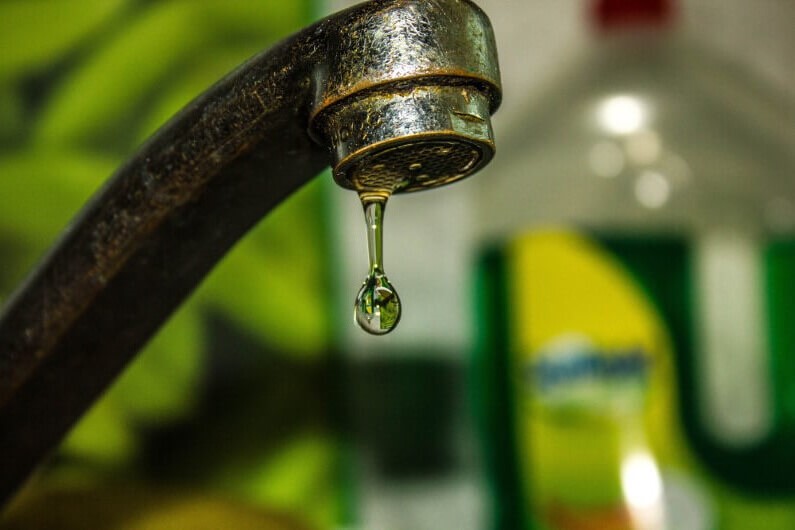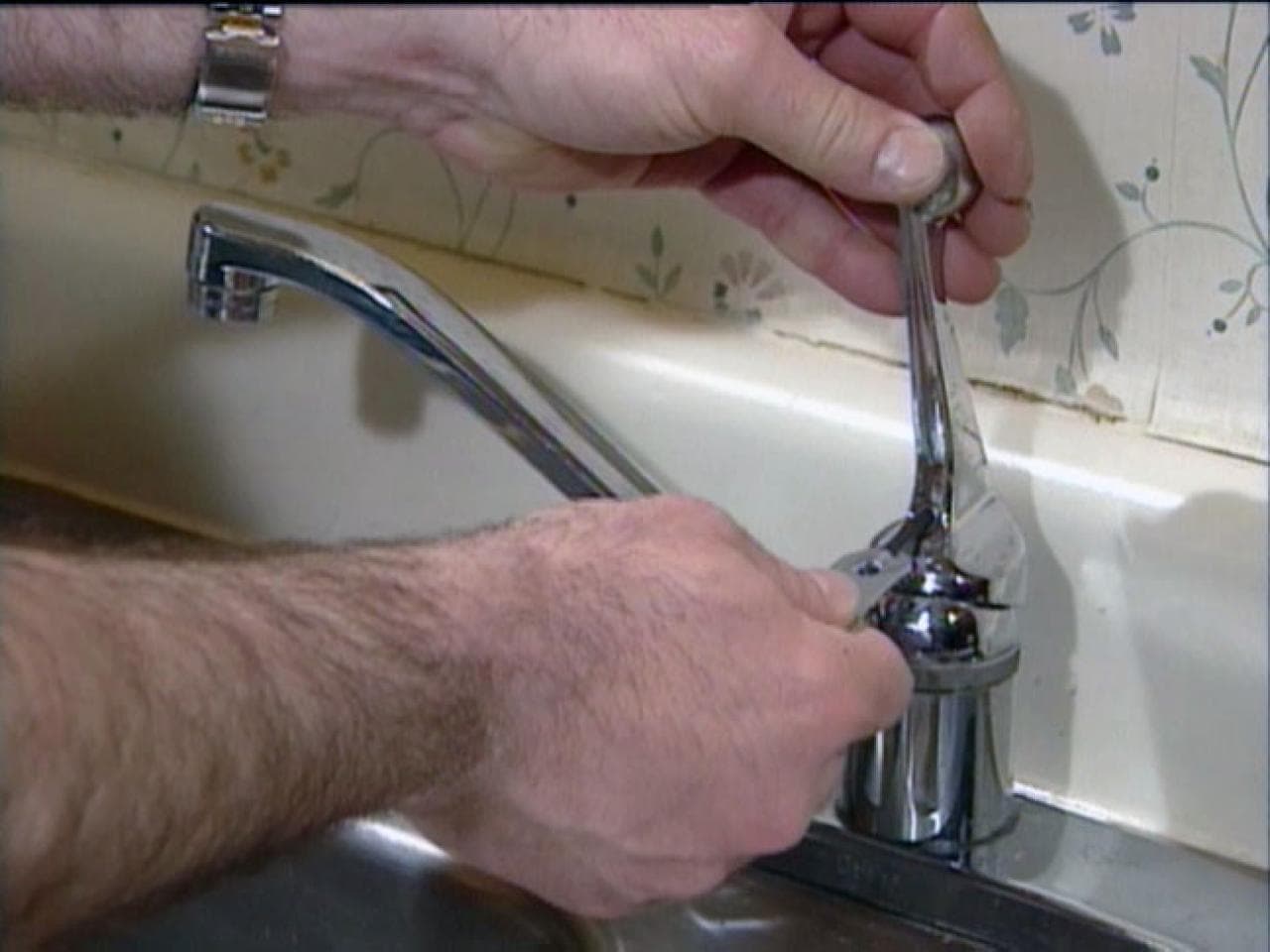Uncovering the Significance of Repairing a Leaking Faucet
Uncovering the Significance of Repairing a Leaking Faucet
Blog Article
Just about everyone is bound to have their own individual theory about Leaky Faucets: Why They Happen & What to Do About Them.

Trickling taps might look like a minor trouble, yet their influence surpasses simply the nuisance of the sound. From drainage to incurring unneeded monetary prices and health risks, ignoring a dripping tap can bring about different effects. In this post, we'll look into why it's critical to address this typical family concern immediately and efficiently.
Wastage of Water
Environmental Impact
Trickling faucets contribute substantially to water wastage. According to the Environmental Protection Agency (EPA), a single faucet dripping at one drip per second can squander more than 3,000 gallons of water annually. This not only pressures water resources yet likewise influences ecosystems and wild animals based on them.
Financial Costs
Raised Water Expenses
Beyond the ecological impact, leaking taps can pump up water bills significantly. The built up waste gradually equates into higher energy expenditures, which might have been prevented with prompt repair work.
Prospective Residential Property Damages
Furthermore, prolonged dripping can result in damage to components and surfaces surrounding the tap. Water build-up can trigger staining, deterioration, and also structural concerns if left ignored, causing additional repair service expenses.
Wellness Problems
Mold And Mildew and Mold Development
The consistent existence of dampness from a dripping faucet develops an ideal environment for mold and mildew and mildew development. These fungi not just compromise indoor air high quality but additionally pose wellness dangers, specifically for people with respiratory problems or allergic reactions.
Waterborne Conditions
Stagnant water in trickling faucets can come to be a breeding place for microorganisms and various other microorganisms, increasing the risk of waterborne conditions. Pollutants such as Legionella microorganisms grow in stationary water, possibly bring about significant illnesses when ingested or breathed in.
DIY vs. Specialist Repair work
Pros and Cons of Do It Yourself Fixing
While some might try to fix a leaking tap themselves, do it yourself fixings feature their own set of challenges. Without correct knowledge and tools, DIY efforts can intensify the concern or bring about insufficient repair services, extending the trouble.
Benefits of Hiring a Specialist Plumber
Hiring a specialist plumber makes certain that the underlying root cause of the dripping tap is resolved properly. Plumbing technicians possess the expertise and tools to detect and repair tap issues successfully, conserving time and minimizing the risk of more damage.
Step-by-Step Overview to Taking Care Of a Dripping Faucet
Tools Called for
Prior to attempting to take care of a trickling faucet, collect the necessary devices, including a flexible wrench, screwdrivers, replacement components (such as washing machines or cartridges), and plumber's tape.
Usual Faucet Issues and Their Solutions
Recognize the type of tap and the particular issue causing the drip. Usual problems include damaged washing machines, corroded valve seats, or faulty O-rings. Describe supplier guidelines or on the internet tutorials for step-by-step assistance on fixings.
Preventive Measures
Regular Upkeep Tips
To prevent leaking faucets, perform regular maintenance such as cleaning aerators, evaluating for leakages, and replacing damaged parts promptly. Furthermore, consider setting up water-saving tools or updating to extra efficient components.
Significance of Prompt Repair Works
Addressing dripping faucets as soon as they're observed prevents more water waste and possible damage, eventually conserving both water and money over time.
Effect On Property Worth
Perception of Well-Maintained Residential Or Commercial Property
Preserving a building in good condition, including attending to upkeep concerns like dripping faucets, enhances its regarded worth and charm among prospective customers or lessees.
Impact on Resale Value
Characteristics with well-maintained plumbing components, consisting of faucets, command greater resale values in the property market. Attending to dripping faucets can contribute to a positive perception during property assessments and arrangements.
Environmental Responsibility
Private Contribution to Preservation
Taking duty for fixing leaking faucets straightens with broader initiatives toward water conservation and environmental sustainability. Every person's activities jointly make a significant effect on preserving precious resources.
Sustainable Living Practices
By prioritizing punctual repairs and embracing water-saving practices, people add to lasting living methods that profit both existing and future generations.
Final thought
Resolving a dripping tap surpasses simple ease; it's an important action toward saving water, reducing financial expenses, and guarding health and property. Whether via do it yourself fixings or expert assistance, acting to deal with trickling taps is a small yet impactful means to promote liable stewardship of sources and add to a much healthier, a lot more lasting future.
How to Fix a Leaky Faucet: Step-by-Step Repair Guide
A leaky faucet may seem like a simple annoyance, but if it's not fixed promptly, that leak could cost hundreds to potentially thousands. From water damage to mold, mildew, and high water bills, even a tiny leak can be catastrophic if left unattended. Damage like this can even affect the overall value of your home, so it's important to take the right approach for leaky faucet repair. You may need the help of a plumber in some cases, but we've got a few tips you can try on how to fix a leaky faucet before calling the pros.
Four Faucet Types
When you're learning how to fix a leaky faucet, the first step is knowing what kind of faucet you're working with! There are four common types.
Cartridge Faucets
Cartridge faucets come in one- or two-handled varieties. In one-handled cartridge faucets, hot and cold water combines in a single cartridge. In the two-handled versions, hot and cold water are controlled separately and mixed in the faucet.
Ball Faucets
Ball faucets have a single lever you push up and down to adjust the pressure and rotate to change the temperature. A slotted metal ball controls the amount of water allowed into the spout.
Compression Washer Faucets
They're the oldest type of faucet, but they're still used in many homes — especially older ones. Compression faucets have two separate handles that, when turned, raise or lower the washer that seals a water valve. This valve stops water from flowing through the faucet when it is turned off.
Disc Faucets
Disc faucets rarely need to be repaired due to their maintenance-free design. The water flow is controlled by two discs — the upper one raises and lowers against a fixed lower disc, creating a watertight seal. If your disc faucet starts leaking, you may need to replace the seals or clean residue buildup from the inlets.
Fixing a Leaky Faucet
Step 1: Turn Off the Water
Whether you're learning how to fix a leaky bathtub faucet or how to fix a leaky kitchen faucet, always turn off the water supply to your working area when you're fixing a leak. The last thing you want is a flood added to your list of things to fix.
Look for the shutoff valves below your sink or around the tub and turn them clockwise to stop the water flow. If your faucet doesn't have shutoff valves, you may need to turn off the water for the whole house. Check to make sure it's off by turning the faucet on. If nothing comes out, you're ready to start the repair.
Step 2: Take Apart the Faucet
How you disassemble your faucet depends on the type of fixture you have. You can use a flathead screwdriver to remove the caps on top of the handle or handles for cartridge and compression faucets. Inside, you should see handle screws. Unscrew these with a screwdriver to remove the handle.
Disc- and ball-style faucets will typically have an inlet screw near the handle, and removing that will reveal the interior of the faucet.
Detach the Valve Stem
For cartridge- and compression-style faucets, you'll see the inner valve stem or cartridge once you remove the faucet handles. If you have a compression faucet, unscrew the brass valve stem. If you have a cartridge faucet, pull out the cartridge. If your cartridge has been in place for a while, it may require some tools or extra force to remove it due to mineral deposits.
Examine and Replace Parts
Once you've removed the parts, check them out to confirm what needs to be replaced. You may see corroded rubber washers, O-rings, stems, or cartridges. On a ball-style faucet, check the seats and springs for damage.
If you need to repair a leaky disc faucet, check the inlet and seals on the lower disc.
Once you determine what parts must be replaced, visit your local hardware store. Bring the damaged parts with you to ensure you can purchase the correct components to replace them.
Clean Valves and Faucet Cavity
If you've removed a stem or cartridge, you may notice mineral buildup in the faucet's threads. Use white vinegar to clean the valve seat by soaking it for a few minutes, then scrub it away with a soft toothbrush and rinse with warm water. You can also clean the interior of the faucet in the same way.
Reassemble the Faucet
Once your faucet is cleaned and the required parts have been replaced, it's time to reassemble it. Put the pieces back together and slowly turn the water supply back on. Doing this slowly is crucial because too much initial water pressure can damage the new hardware you've just installed.
https://homewarranty.firstam.com/blog/how-to-fix-leaky-faucet

Do you really like reading about Why Are My Faucets Dripping (And Can I Fix It Myself)?? Leave feedback down the page. We will be glad to know your responses about this posting. Hoping that you come back again in the near future. Sharing is good. Helping others is fun. I cherish your readership.
Report this page